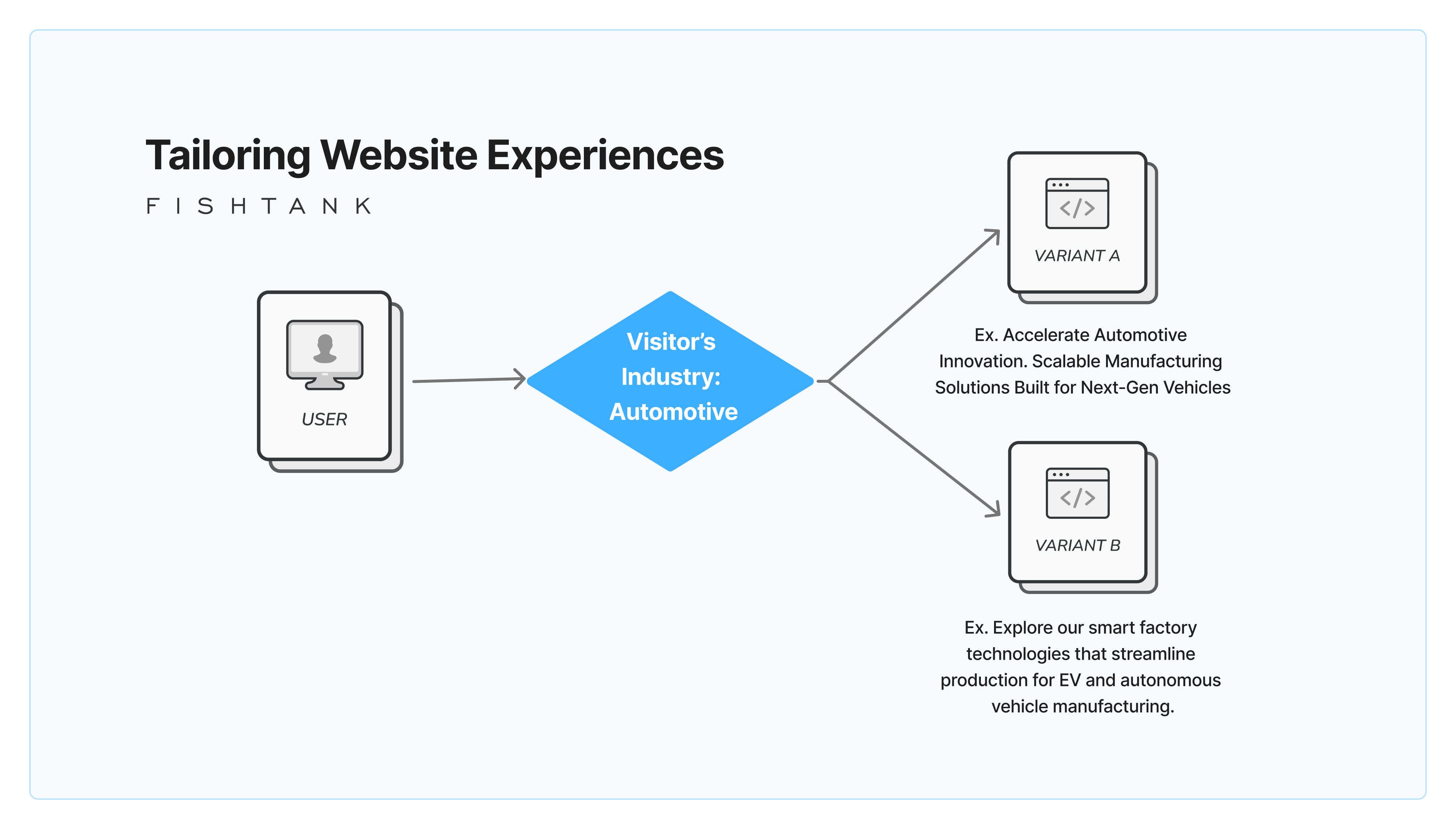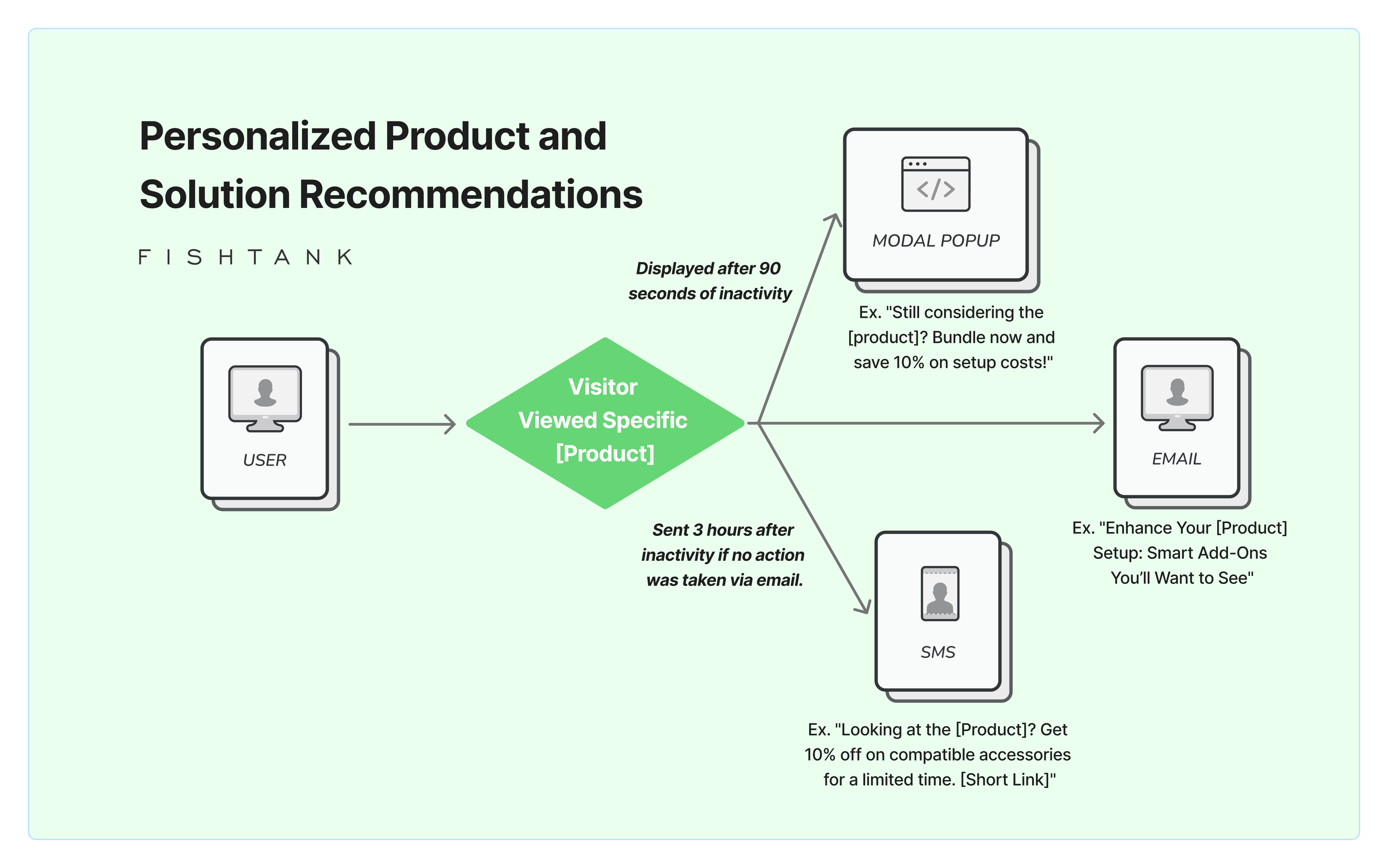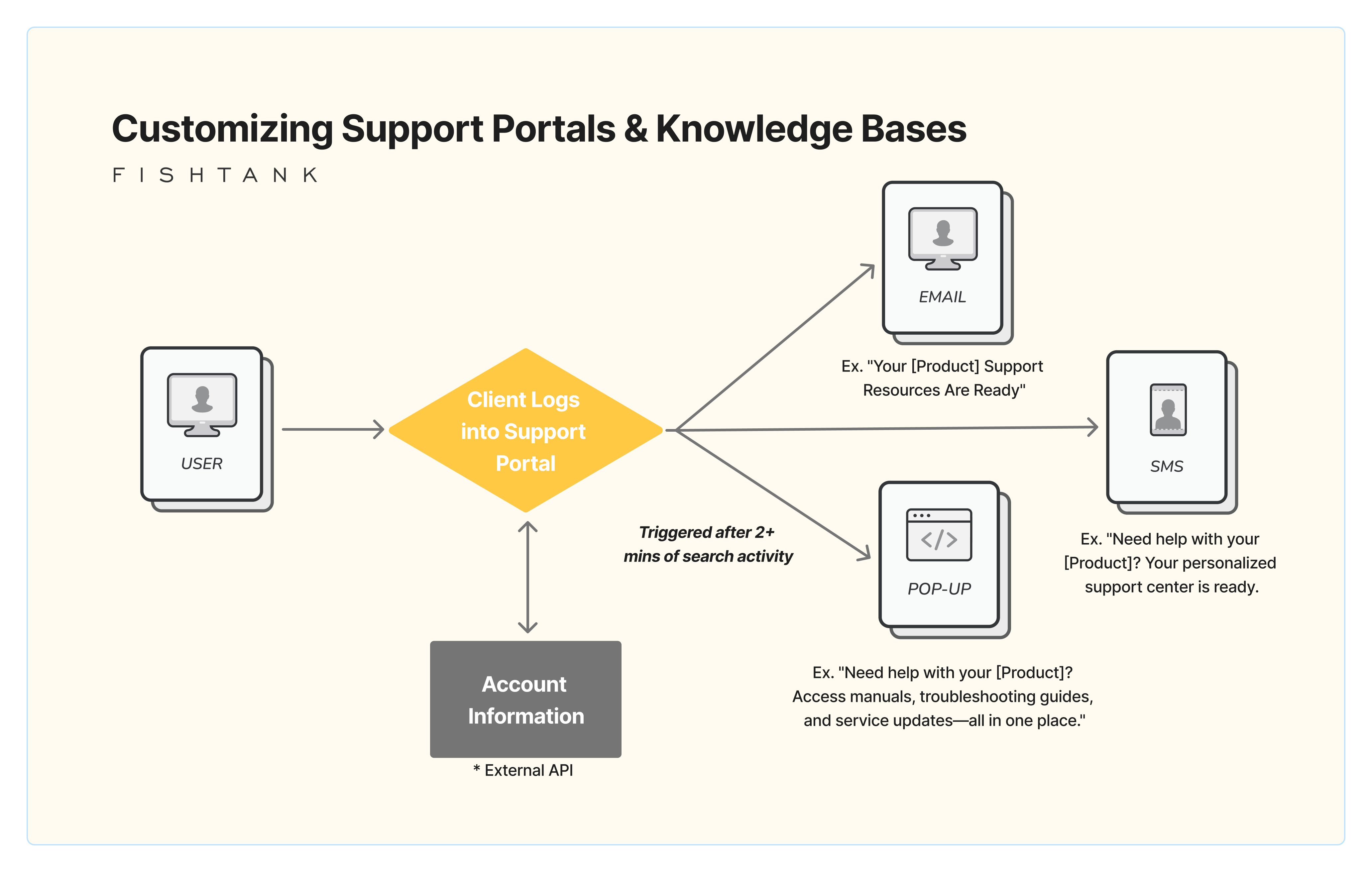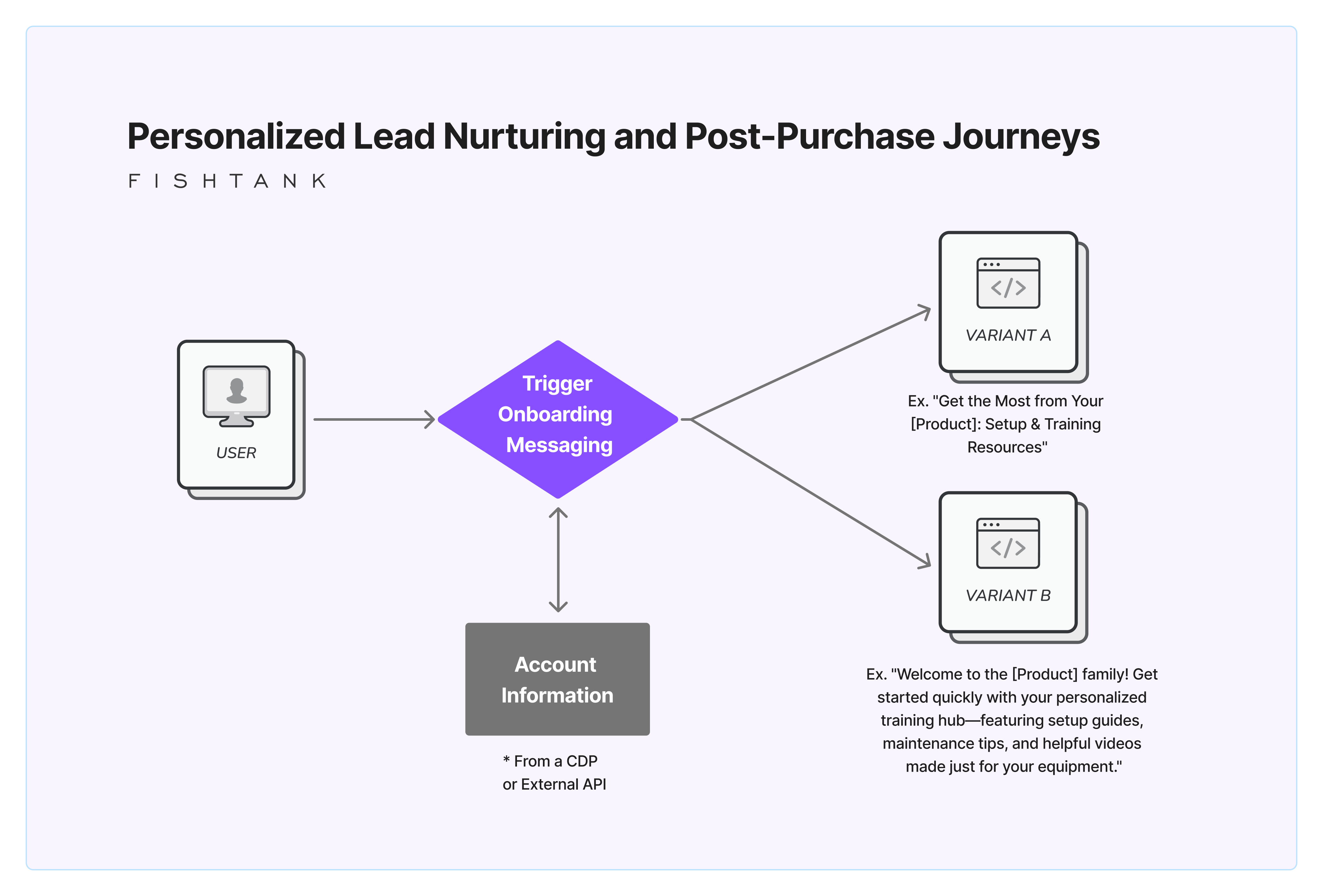The Power of Sitecore Personalization for the Manufacturing Industry
How Sitecore Personalization transforms stakeholder engagement in the manufacturing industry.
How Sitecore Personalization transforms stakeholder engagement in the manufacturing industry.
Start typing to search...
The manufacturing industry is at a pivotal moment, navigating rapid digital transformation driven by AI, smart factories, IoT, and data-driven automation. While these innovations are revolutionizing operations, manufacturers are also facing a new challenge: meeting rising customer expectations for seamless, personalized digital experiences. B2B buyers now expect the same level of personalization they experience in B2C interactions—yet many manufacturers still rely on outdated, one-size-fits-all approaches to marketing, sales, and service.
This is where personalization changes the game. By using AI insights, behavioral targeting, and real-time data, manufacturers can tailor experiences that meet customer needs at every touchpoint—from personalized product recommendations to customized distributor portals and targeted nurture journeys. Companies that embrace personalization will not only strengthen customer loyalty but also accelerate deal cycles, improve conversion rates, and gain a powerful competitive edge.
In this blog, we'll explore real-world use cases for Sitecore personalization in the manufacturing sector and show how platforms like Sitecore XP, XM Cloud, and Personalize can transform customer engagement in today's digital-first world.
Creating meaningful, personalized experiences for buyers, distributors, and end-users takes more than great products—it takes the right technology. Sitecore offers a suite of powerful personalization tools designed to help manufacturers engage more effectively, no matter where they are in their digital transformation journey. Depending on your goals and existing infrastructure, here are a few ways you can activate personalization:
This blog will highlight how Sitecore's personalization capabilities can help manufacturers deepen customer relationships, accelerate sales, and drive loyalty—but if you're wondering which platform is the best fit for your business needs, we've got you covered with a detailed guide: Sitecore Personalization Deep Dive: XP vs XM Cloud vs Personalize.
Let's dive into how leading manufacturers can turn personalization into a competitive advantage in an increasingly digital world.
While manufacturers are advancing internal digital transformation, delivering exceptional customer experiences (CX) remains a distinct and complex challenge—especially in B2B relationships where expectations are rising sharply. Let's break down seven key hurdles manufacturers face today:
Manufacturing has traditionally operated in complex B2B environments with long sales cycles, high-value purchases, and multiple decision-makers across departments like procurement, engineering, and finance.1 Buying decisions are driven by logic, ROI calculations, and technical requirements.1 However, today's B2B buyers are also B2C consumers outside of work, accustomed to fast, intuitive, and personalized digital experiences from companies like Amazon.2 These B2C expectations are spilling into their professional lives—and manufacturers often struggle to meet them.3 Research shows that B2B customer experience ratings consistently lag behind B2C benchmarks.3 Manufacturers must now deliver faster, easier, and more personalized digital experiences to stay competitive, closing the gap between traditional B2B complexity and modern B2C simplicity.
Manufacturers often deal in highly technical, configurable, and specialized products.4 Buyers, distributors, and end-users require easy access to a wide range of information—technical specs, CAD files, compatibility guides, manuals, and case studies.2 Yet many manufacturing websites and e-commerce platforms make it difficult to search for or surface relevant content.2 Rudimentary product search tools, overwhelming product catalogs, and poorly structured information architectures create frustration for buyers trying to find the specific details they need.2 Delivering clear, contextualized product information is critical to simplifying the buying process and supporting customer decision-making.
B2B relationships in manufacturing are typically built on long-term trust, ongoing service, and reliability—not one-off transactions.1 Customers often have dedicated account managers and expect proactive support before and after the sale.1 That means customer experience must extend far beyond the point of purchase, covering onboarding, training, maintenance notifications, service updates, and continuous relationship management.1 Manufacturers that fail to deliver seamless support risk eroding trust and losing valuable, long-term business relationships to more proactive competitors.
The B2B manufacturing customer journey involves many stages—research, consultations, demos, quotes, negotiations, ordering, onboarding, and ongoing support—often managed by different internal teams.1 Sales, marketing, engineering, service, and finance departments typically operate in siloed systems like CRM, ERP, ticketing platforms, and e-commerce portals.5 This fragmentation results in inconsistent experiences, where one department may be unaware of prior interactions handled by another.6 Without integrated data and shared goals across teams, customers experience friction, repetition, and delays.1 Building a connected, consistent journey across every touchpoint is essential to delivering the seamless experience modern buyers expect.
Today's B2B buyers interact with manufacturers across a growing number of digital and offline channels—websites, distributor portals, field sales teams, service centers, and mobile apps.7 Maintaining a consistent and efficient experience across all channels is challenging, especially when legacy systems are involved.7 Customers often encounter outdated portals, clunky order tracking, slow response times, or lack of real-time inventory visibility.7 As a result, buyer frustration grows, and customer loyalty is put at risk. Customers increasingly expect quick, transparent, and seamless interactions across every channel they use.8 Manufacturers who simplify the experience will gain a significant competitive edge.
Modern B2B buyers prefer autonomy—they expect robust self-service capabilities that allow them to research products, track orders, view invoices, access technical documentation, and request quotes without waiting for sales or support teams.7 Providing these 24/7 self-service options not only meets customer expectations but also drives down operational costs.7 However, building comprehensive, integrated self-service experiences is no small feat. It requires technical investment and seamless backend integration across systems.7 Additionally, when human support is needed, it often involves highly technical issues that require knowledgeable assistance.2 Balancing self-service empowerment with accessible expert support is critical for manufacturers seeking to meet modern buyer expectations.
Manufacturing organizations have traditionally been product-centric or engineering-centric.2 However, meeting today's rising customer expectations demands a fundamental cultural shift toward customer centricity.9 That means viewing every interaction through the lens of the customer's experience, not just the company's internal processes. Manufacturers must prioritize ease of doing business, speed of service, responsiveness, and personalization across every department and touchpoint.3 Organizations that successfully embed a customer-first mindset will stand out in a landscape where many competitors are still struggling with internal silos and legacy approaches.2
The gap between traditional manufacturing CX and modern digital expectations represents a major opportunity.3 Manufacturers that invest in connected systems, enable personalization, and streamline the buyer journey can differentiate themselves, strengthen loyalty, and drive sustainable growth. But to close the gap, they must first tackle these fundamental challenges head-on.

Customer Pain Point: Manufacturing websites often serve a broad mix of audiences—distributors, engineers, procurement teams, and end-users—leading to generic experiences that don't fully resonate with anyone.
Personalization Approach: Dynamically adjust website content based on a visitor's industry, company size, job role, behavior, location, or stage in the buying cycle to create a highly relevant, engaging experience.
How Sitecore Delivers It:
Expected Outcome:

Customer Pain Point: Manufacturing products are often complex and highly configurable—yet buyers are left to navigate extensive catalogs or technical spec sheets without guided assistance.
Personalization Approach: Deliver smart, contextual product and solution recommendations based on purchase history, compatibility requirements, industry use cases, or current online behavior.
How Sitecore Delivers It:
Expected Outcome:

Customer Pain Point: After purchasing, customers often struggle to find relevant technical documentation, maintenance guides, or troubleshooting help specific to the equipment they own.
Personalization Approach: Personalize support portals and knowledge bases based on a customer's registered products, industry, job role, service history, or recent support interactions.
How Sitecore Delivers It:
Expected Outcome:

Customer Pain Point: B2B manufacturing buyers often experience long, fragmented journeys with generic messaging that doesn't address their stage-specific needs or industry context.
Personalization Approach: Design dynamic lead nurturing and post-purchase journeys tailored to a buyer's behavior, industry, company size, purchase history, and position in the decision-making process.
How Sitecore Delivers It:
Expected Outcome:
Personalization isn't just a marketing tactic—it's a strategic lever for manufacturers looking to deepen customer relationships, accelerate sales, and future-proof their businesses. By delivering relevant, data-driven experiences across every touchpoint, manufacturers can improve customer engagement, loyalty, and operational efficiency. Here's how personalization drives real impact in the manufacturing sector:
Manufacturers that embrace Sitecore's personalization capabilities aren't just adapting—they're setting a new standard for customer engagement. The future of manufacturing isn't built on generic catalogs and one-size-fits-all sales pitches. It's about delivering the right solution, at the right time, through the right channel. Personalized, intuitive, and value-driven. Exactly the kind of experience today's B2B buyers expect—and deserve.
The manufacturing industry is facing major disruption—digital transformation, changing buyer expectations, and new competition that's faster and more customer-focused. Yet, too many manufacturers are still clinging to outdated, transactional models. That's where Sitecore personalization changes the game. With AI-powered insights and real-time data, you can move beyond the generic—offering dynamic product recommendations, smarter support experiences, and tailored journeys that match every buyer's needs.
The result? Faster sales cycles, stronger customer loyalty, and a brand reputation built on innovation and trust. Personalization isn't optional—it's the future of manufacturing success. Ready to lead the way? Let's make it happen.
Until then—happy personalizing.